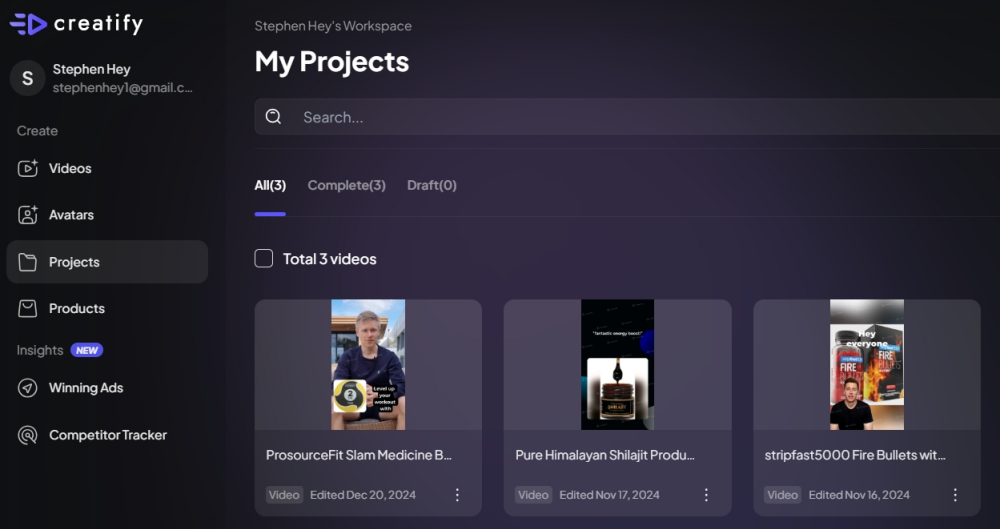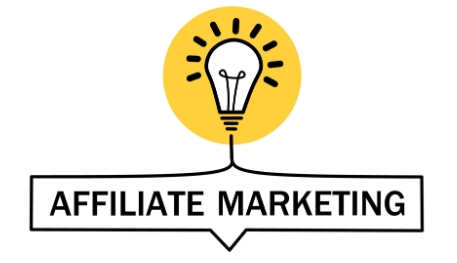Webless Affiliate Marketing
Affiliate marketing seems to be everywhere these days. At its simplest, affiliate marketing is about earning commission by promoting a company’s product or service. This usually involves signing up for an affiliate program and then sharing a unique link or code with potential buyers. When someone purchases through your link, you earn a cut of the sale. Pretty straightforward, right?
Now, the traditional setup often revolves around having a blog or a website where you can keep things in one place—like your product reviews, comparisons, and maybe some articles about topics related to what you’re promoting. This ‘digital home’ helps build an audience and establishes trust as readers can continuously check back for new content.
But here’s the thing—having a website isn’t the only way to dive into the affiliate marketing pool. Maybe owning a website sounds too complicated, maybe it’s too time-consuming, or maybe you’re just more interested in other platforms. Fortunately, you can dive deep into affiliate marketing without needing a website at all. Platforms like social media, email, and even offline methods can be just as effective, if not more so, depending on where your audience hangs out.
Ultimately, the goal here remains the same: Making money by connecting people with products they need through authentic, engaging methods. Yet the medium changes, which makes things pretty exciting. There’s a whole world out there for affiliate marketers without websites, and it starts by embracing flexible methods and finding the right tools that work for your style.
Leveraging Social Media Platforms for Affiliate Marketing
Social media offers an incredible opportunity for affiliate marketing without the need to manage a blog or website. The key is choosing the right platform based on where your potential buyers spend most of their time. Whether it’s Instagram, Facebook, TikTok, or even LinkedIn, each platform has its unique vibe and audience reach. You’ll want to pick the one that best suits your product and where you can naturally interact with your audience.
Creating engaging content is crucial. The content should feel genuine, not just another sales pitch. This could be a story about how you use a product in your daily life or a video showing the benefits of the product. Think of it as sharing something valuable with friends rather than pushing a sale.
Building trust is everything. Followers respond to authenticity, so it’s important to share, comment, and engage genuinely with your audience. When they see a real person behind the posts, they’re more likely to check out what you’re promoting. And when they trust you, they’re more inclined to follow your recommendations.
Try using creative strategies to bump up engagement. Running a contest or giveaway related to the product can generate excitement. Collaborating with other influencers in your niche can also share audiences and boost your reach.
And let’s talk numbers. Tracking the performance of your content lets you know what’s working and what isn’t. Most social platforms offer built-in analytics tools that you should use to tweak and improve your strategy. Keep an eye on the likes, shares, comments, and especially clicks on your affiliate links. This data is gold when it comes to fine-tuning your approach for better conversions.
Email Marketing as a Tool for Affiliate Success
Email marketing is another powerful avenue for affiliate marketers who’d prefer not to manage a website. You might think building a mailing list is tough without a webpage, but there are ways around that. Social media can help you gather subscribers, or even offline events where you meet potential customers face-to-face can be great opportunities.
Creating emails that stand out in a crowded inbox is a skill you want to master. The key is in crafting content that’s not just promotional but genuinely interesting or useful to your audience. Share some insights, throw in a tip or two, or tell a story that hooks readers in. And, of course, there should be a straightforward call to action directing them to your affiliate link.
Taking care of the legal stuff is crucial. Regulations like the GDPR require you to get explicit consent from subscribers and provide them with clear options to unsubscribe at any time. Ignoring these rules isn’t worth the risk and keeping your audience’s trust is the top priority.
Automation tools can be your best friend here. They allow you to send personalized messages to your subscribers at just the right moment, tailored to their interests and behaviors. This way, your outreach efforts have a personal touch that can significantly increase conversion rates.
Finally, it’s vital to monitor your emails’ performance. Don’t just send them off and forget. Track open rates, click-through rates, and conversions. This data will help you determine what content works best and when to send it, refining your strategy for maximum impact.
Podcasting and Video Content.
Podcasting and creating video content open new avenues for affiliate marketing, especially for those who prefer engaging their audience through audio and visuals. Starting a podcast or a YouTube channel provides a platform to share your thoughts, stories, and product endorsements in a very personal and interactive manner.
Creating content that grabs and keeps attention is the name of the game. Focus on making genuine product reviews or exciting unboxings that aren’t just informative but also entertaining. This combination can help establish your presence and credibility, leading to a loyal audience that’s keen on listening to or watching what you have to say.
Monetizing this content directly through affiliate links is a viable strategy. The links can be shared in video descriptions, shown on screen, or mentioned during a podcast episode, guiding listeners or viewers on where to find these must-have products.
Inviting guests for interviews or collaborating with fellow creators can expand your reach further. These partnerships diversify your content and help tap into each other’s audiences, increasing visibility for both parties.
Ways to Promote Your Affiliate Products With No Website.
There are several ways to promote affiliate products without a website. Here are some of them:
- Promote through social media. You can use platforms like Facebook, Instagram, Twitter, Pinterest, TikTok, etc. to share your affiliate links with your followers or join relevant groups or communities where you can offer value and recommend products that solve their problems or needs.
- Write an e-book. You can create an e-book on a topic related to your niche and include your affiliate links in the content or at the end of the book. You can then distribute your e-book for free or for a low price on platforms like Amazon Kindle, Smashwords, Google Play Books, etc.
- Create forums or online communities. You can start or join forums or online communities where you can interact with people who are interested in your niche and share your expertise and recommendations. You can use platforms like Reddit, Quora, Facebook Groups, Discord, Linkedin etc.
- Record YouTube videos. You can create videos on topics related to your niche and include your affiliate links in the description or in the video itself. You can also use YouTube ads to drive traffic to your videos or to your landing pages where you can collect leads and promote your affiliate offers.
- Use paid advertising on search engines. You can use platforms like Google Ads, Bing Ads, etc. to create ads that target keywords related to your niche and direct the traffic to your landing pages where you can capture leads and promote your affiliate offers.
- Publish on content platforms. You can use platforms like Medium, HubPages, Vocal, etc. to write articles on topics related to your niche and include your affiliate links in the content or in your bio. You can also leverage the existing audience of these platforms and get exposure for your content.
- Utilize email marketing. You can build an email list of subscribers who are interested in your niche and send them regular newsletters with valuable content and your affiliate links. You can use platforms like Mailchimp, AWeber, ConvertKit, etc. to create and manage your email campaigns..
- Record podcasts. You can create podcasts on topics related to your niche and include your affiliate links in the show notes or in the audio itself. You can also use podcast ads to drive traffic to your podcasts or to your landing pages where you can collect leads and promote your affiliate offers.
- Media buying. You can use platforms like Zeropark, PropellerAds, MGID, etc. to buy traffic from various sources like pop-ups, push notifications, native ads, etc. and direct it to your landing pages where you can capture leads and promote your affiliate offers..
- Influencer marketing. You can collaborate with influencers who have a large and engaged audience in your niche and ask them to promote your affiliate links or products in exchange for a fee or a commission. You can use platforms like FameBit, AspireIQ, Upfluence, etc. to find and connect with influencers.
- Content marketing. You can create valuable and engaging content that attracts and educates your target audience and subtly promotes your affiliate links or products. You can use different formats like blog posts, infographics, case studies, webinars, etc., and distribute them on various channels like social media, email, forums, etc.
Affiliate marketing Idea with Amazon (No Website)
“Creatify for Ads idea”
Another tool you can use to make small ads for TikTok or Facebook is an AI app called Creatify. I have just started trialing it, with some great results.
 You can start for free although the videos come with watermarks that can only be removed by purchasing a paid plan from $39.00 per month.
You can start for free although the videos come with watermarks that can only be removed by purchasing a paid plan from $39.00 per month.
Or $33.00 per month if paid yearly, this gives you 1200 credits that you can use over the year. (5 Credits per video)
Final Thoughts
Balancing your content is key. Aim to strike a nice balance between informative, entertaining, and lightly promotional content. When you consistently provide value, your audience trusts your recommendations, making them more likely to click on those affiliate links.
Read more about How to be Successful at Affiliate marketing
Steve

Some links on this site may be affiliate links, and if you purchase something through these links, I will make a commission on them. There will be no extra cost to you and, you could actually save money. Read our full affiliate disclosure here.

